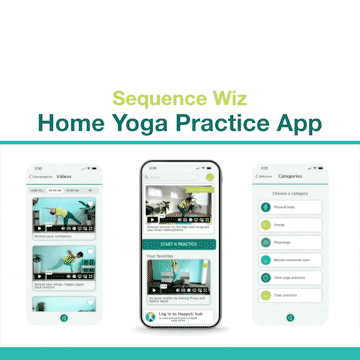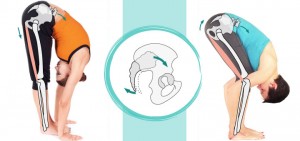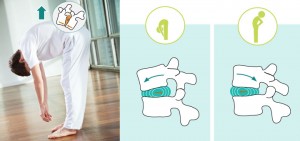The Yoga Therapist and Cancer Care: How to Begin
2Before my own experience with my husband’s cancer, I would never have imagined that I would be drawn to this work. However, during his and my cancer journeys, I discovered that cancer can create an amazing opening—one that allows for deepened presence, connection, and significant personal transformation. This experience informs my professional work. What follows are some thoughts on where and how you might begin to work with this population. This is by necessity a distillation because the field of cancer care is vast. It is intended only as a starting place.
If a person with cancer comes into your therapeutic yoga class or wants individual yoga therapy, what are the key things you need to know or consider? Cancer is a complex and challenging subject and none of us can know it all. What follows are my thoughts for you to consider: first, whether you are the right person to work with a person(s) with cancer and second, how to begin this work.
The Role of the Yoga Therapist
Your role as a yoga therapist here is essentially no different than your role when you work with any client/student. You must ask yourself these questions:
- Can I be present emotionally and mentally for this work?
- Do I understand what knowledge is needed?
- Can I use the entire range of yoga therapy tools and adapt them for this client/student with this diagnosis?
Cancer care, however, presents yoga therapists with a broad array of challenges specific to this diagnosis. First of all, cancer is not one disease but many different diseases, and there is a wide variety of subtypes of most cancers. For instance, the name “breast cancer” actually covers many different subtypes and pathologies, each of which requires different treatments. Cancer can be diagnosed at any point from where treatment is likely to lead to full and lasting remission to where treatment is not an option. Clients can present at any point in that continuum—from diagnosis, to undergoing treatment, to remission, to end-of-life. If you work with a client over time, you may well be presented with a regularly changing picture of symptoms, side effects, and emotions, as well as shifting information about the disease and the prognosis. Each session/class/meeting requires updating your assessment of the client/student and making adjustments as needed. There is tremendous variation in the presentation of both an individual over time and individuals with the same diagnosis who get the same treatment. My purpose here is not to offer a cancer primer but rather to focus on yoga and cancer care. So, let’s start with you, the yoga therapist.
Being Present
Perhaps the biggest challenge facing you when a client presents at any stage of cancer is this: how can you be truly present for this work that can evoke so much in the client and in yourself? As with any yoga therapy practice, it is critical to understand your own motivation. This work is definitely not for everyone. It requires the yoga therapist to hold space in the face of what is often great suffering on one or many levels (mayas or koshas) for the client. This means you need to be prepared to work with each of these layers; an asana-only approach is useful for only a small percentage of most clients.
Psycho-emotional and spiritual issues are almost always present, and you need to be prepared and able to use a wide range of yoga methods, including intention, breathing, ritual, chanting, meditation, and gesture (nyasa), all of which can be incredibly useful.
First, take time to prepare yourself to be present with your client. Schedule a short period for yourself to connect to your breath or meditate before you begin. Being centered is critical. During the session or class be sure to tune in to your internal signals, including your own discomfort. Learn to observe what triggers emotional, physical, and mental reactions in you. Your own regular yoga practice can help you realize if you are having a reactive experience—it is not unusual to get our buttons pushed in this work. When this happens to you, you will need to get reconnected to your own equanimity. It is okay to take time in the session or class to drop back inside and connect to your own center and reground yourself. I will sometimes share with the client or class that I need a moment to reflect or connect to my own breath/center and I will invite them to connect to their breath at the same time. It is your job to be calm and listen in an open-hearted and non-judgmental manner.
Notice what sets you off. If this work on yourself is appealing, then working with people with cancer creates a wonderful opening for you to be of service to your clients and at the same time to refine your own ability to stay present and open in places that may be challenging for you. When you work with someone with cancer, invite yourself to see the person beyond the hair loss, weight loss/gain, rash, or other signs and symptoms of cancer and its treatment. Allow space for that person to cry or to express anger or despair. Create openings for these feelings to arise in the client’s body/mind. If you are teaching a therapeutic class, acknowledge the loss when a group member dies, the sadness of a member’s relapse, the feelings that are present when treatment ends, the joy of remission, and so on. Your presence and self-awareness about these events is essential. This is no easy task and the how-to is not for this article.
Be sure you understand your scope of practice. Don’t let your experience or opinions about medical or alternative care tempt you to give medical advice. Don’t hesitate to ask your client to talk with their healthcare provider. If you feel unsure or uncomfortable about what the client is able to do, ask them to discuss it with their provider. Oncology rehab providers (physical and occupational therapists) can be very useful and often more accessible than an MD. Frequently there will also be a nurse care manager with whom the client can talk.
When I come up against my own reactive spots, I get help. In addition to my own yoga practice, I rely on my teacher and often a knowledgeable colleague/ mentor for working through the places I find challenging. If you are going to work with this population, it is important to find some resources for yourself. If you have personal experience with cancer, remember that this is just your experience. Cancer can be bewildering and frightening for the client, and the yoga therapist can often be caught in that same sense of not knowing or fear. Frequently, our knowledge, previous experience, and intuition are useful and we just need a reminder about what we know or intuit about the client. And, many times, we simply do not have the knowledge or experience to draw from. A good mentor who knows cancer can really help.
In the second part of the article (coming next Friday) Ellen will discuss the red flags: critical issues faced by people with cancer that impact health and safety when doing yoga – tune in!
This article was first published in Yoga Therapy Today (a publication of the International Association of Yoga Therapists).
![]()
 Ellen Fein was the caregiver to her spouse, who died of cancer, and was a cancer patient herself with a life-threatening diagnosis. She had spent over twenty five years working as a licensed clinical social worker in the behavioral health field; later she worked as cancer coach in an oncology practice. In that capacity she worked with both the oncology staff and patients providing yoga therapy, mind/body skills, and support around decision making and the use of integrative medicine. As cancer coach, she was focused on maintaining and improving quality of life for patients and their family. Currently she works as guest faculty at the Viniyoga therapy program and as senior faculty at the Center for Mind-Body Medicine in addition to her own private yoga therapy and mind-body medicine coaching, teaching, and mentoring work. Her current yoga therapy clients include people with serious and chronic conditions such as cancer, pain, autoimmune disorders and neurological disorders.
Ellen Fein was the caregiver to her spouse, who died of cancer, and was a cancer patient herself with a life-threatening diagnosis. She had spent over twenty five years working as a licensed clinical social worker in the behavioral health field; later she worked as cancer coach in an oncology practice. In that capacity she worked with both the oncology staff and patients providing yoga therapy, mind/body skills, and support around decision making and the use of integrative medicine. As cancer coach, she was focused on maintaining and improving quality of life for patients and their family. Currently she works as guest faculty at the Viniyoga therapy program and as senior faculty at the Center for Mind-Body Medicine in addition to her own private yoga therapy and mind-body medicine coaching, teaching, and mentoring work. Her current yoga therapy clients include people with serious and chronic conditions such as cancer, pain, autoimmune disorders and neurological disorders.
You can find Ellen on the web: www.breathe2change.com / Facebook @breathe2change / Twitter @EllenFein1 / YouTube @breathe2change
![]() [jetpack_subscription_form title=”Read more stories from yoga teachers who found their unique voice “]
[jetpack_subscription_form title=”Read more stories from yoga teachers who found their unique voice “]





















Beautiful article. Thank you!
Thank you, Ellen! I really admire yoga teachers connecting to persons with cancer.